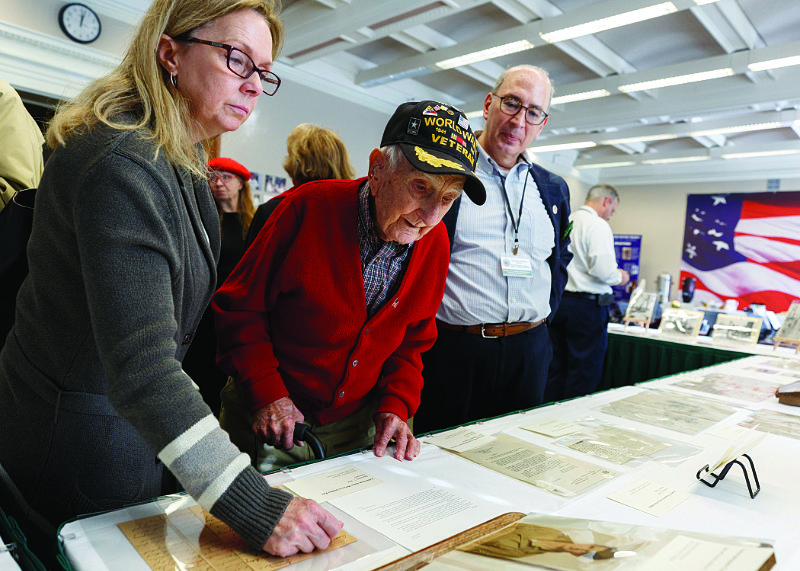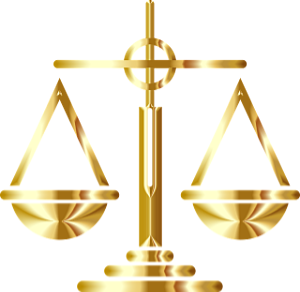by Rabbi Leor Sinai
Zionism, initially defined as the national movement of the Jewish People, has made a huge comeback onto Global Jewry's agenda.
Organizations across the globe, including the Government of Israel, are investing tremendous resources into the reclamation and re-education of Zionism. On the one hand the term has been hijacked by others for the purposes of delegitimization, anti-Israel activities, and in some cases lending creed to the age-old dehumanization of Jews – and in the modern sense – the State of Israel. Depriving Zionism's human qualities is a strategy employed by those who seek Israel's destruction, nothing less.
Yes, anti-Zionism is anti-Semitism, hence the global Jewish response. On the other hand, the philosophy and practice of Zionism has not moved on with the times, as it had in the past. As a result, the disengagement from Zionism has led to the hijacking of Zionism.
The events of October 7, 2023, when Hamas invaded southern Israel, murdering, kidnapping, and terrorizing innocent civilians, cast a harsh light on this reality. What followed – both the ensuing war and the alarming surge of antisemitism across Western societies – has fundamentally altered the discourse around Zionism and Jewish identity in the global context. For many Jews worldwide, these events evoked painful historical echoes of times when Jews were hunted and persecuted, challenging the post-1948 narrative of safety and acceptance.
These developments have forced many Jews to reconsider the balance between universalism and the particular needs of Jewish safety and continuity.
One of the challenges we must overcome is understanding our collective, and specifically our youth's, self-identification with Global Citizenship. Whereas prior to the State of Israel's independence the stateless Jew was relegated to her/his own group-identity (or ghetto), 1948 changed all that. Just as Herzl willed it, and predicted it, Israel – and by extension today's Jew – has gone global. In reaction to global citizenship, ethnocentricity is seemingly less appealing. With the advancement of technology, high speed communications, accessible trans-continental transportation, and high-volume global human-interactions, today's Jew may find her/himself torn within the tension of Jewish-group self-preservation versus global-group-identity.
This tension has only intensified since October 7. While global Jewry actively seeks to participate in social justice causes, global economies, business innovation, and other areas of development, the violent targeting of Israelis and the subsequent rise of Jew-hatred across university campuses, social media, and public spaces have raised sobering red flags. These developments have forced many Jews to reconsider the balance between universalism and the particular needs of Jewish safety and continuity.
Generally speaking, the social media generation inspired by the global trends, may no longer see themselves as "chosen"; not within the bare-minimum sense of belonging to one ethnic group, nor to the land for that matter, rather they seem themselves as are part of the larger global social-group of loosely affiliated and overlapping layers of group-identity (i.e., American, LGBTQ, universal values, global citizenship, entrepreneurship, and more) competing with the collective Jewish identity and narrative. It is important that as part of our reclamation, redefining and re-education of Zionism, that we consider incorporating a global, perhaps ambiguous, understanding of what Zionism means today. Rather than trying to pinpoint what Zionism means, we may opt for a wider definition; a definition of Zionism that is wide enough to include the variety of sub-group identities Jews belong to, and safe enough to ensure historical continuity, peoplehood, and mission, as part of Zionism's original principle of taking action – anchored in national aspirations.
The post-October 7 reality demands that this wider definition also acknowledge the renewed awareness of vulnerability while reaffirming the commitment to engage with the world. If we expect others, including our youth, to feel included in our collective identity, we should feel comfortable enough exploring what Zionism means to others.
Early Zionist thought was fed by visions of a utopia ...
Here is my purposely ambiguous meaning of Zionism: Zionism is the physical manifestation of the Jewish soul.
Transmission of Zionism is experiential; it is through experientialism – based on imminent truths – that we are connected to real-world events. We explore, we ask questions, and we reveal purpose. Seeking clarity, purpose, and answers to difficult questions, permeates throughout our history. We identify inquiry and find purpose throughout Israelite cultic practice, Rabbinic Judaism, and of course Zionism, all rooted in experientialism, in reaction to the world we live in. It was only after Jacob's earthly wrestling with Gd's presence that Jacob transformed to Isra-el: "…for you have struggled with Gd and with humanity and have prevailed…" (Genesis 32:28). Jacob underwent a transformation, as did Jacob's "Children of Israel" whom upon earthly experiences – perhaps revelation at Sinai – transformed to the People of Israel, and later through post-exilic experiences to the Nation of Israel and of course the State of Israel, all experiential, all transformative, and all in reaction to the world we live in and collective events we experienced.
Today's Zionism, particularly in the aftermath of October 7, seeks its next exposé – one that acknowledges pain and trauma while refusing to abandon hope and the pursuit of a better future.
Early Zionist thought was fed by visions of a utopia, of an Israel that would be perfect and once it came to be, the modern nation-state would initiate a wave of understanding and co-existence resulting in an ideal global community. The visions of a utopia have yet to be realized, if ever, yet entry into the global community of nations is a reality that continues to alter the Jews' psyche from exilic and excluded, to welcomed and accepted – by and large – among the family of nations. As a result, and in reaction to ongoing geo-political global events, Zionism as it was is questioned.
This mission remains unchanged, even as recent events have tested our resolve.
The war that followed October 7 and the troubling global responses to it have complicated this narrative. They serve as stark reminders that acceptance remains conditional for many Jews, that antisemitism can rapidly resurface in moments of crisis, and that Israel's legitimacy continues to be questioned in ways no other nation-state experiences. And yet, despite these harsh realities, we strive to look forward, hopeful for a time when light overcomes darkness. We refuse to abandon the vision of a future where both particular Jewish security and universal human flourishing can coexist.
My hope is that we as a collective awaken, focus on what binds us, rather than what separates us, and leapfrog Zionism into an era Herzl and our ancestors could only dream of. Moving forward will require us to let go of the past – not forgetting our past – but willing to move forward from the past and into a globalized perception of self, a global Zionist citizenship.
As no longer a people scattered in exile, but as a nation among nations we must see ourselves through a global prism, and only then will we be successful in reclaiming, redefining and re-educating Zionism, our destiny, succeeding in the delivery of l'dor va'dor, from generation to generation. This mission remains unchanged, even as recent events have tested our resolve. Perhaps it is precisely in such moments of challenge that our commitment to a forward-looking, globally engaged Zionism becomes most essential – not as a retreat from the world, but as a means of transforming it, bringing us closer to that time when light truly does overcome darkness.
About the author
Leor Sinai lives with his family in Tel Aviv, Israel. Originally from New York, Sinai and his family moved to Israel in 2011. Rabbi Leor Sinai is a Global Speaker, Education Diplomacy Thought-Leader, and long-time Campaign Executive. As Principal of Sinai Strategies— a consulting agency—Sinai seeks to educate and motivate influential actors to collaborate towards advancing Global Jewish – Israel relationships. He has traveled around the world, building bridges and strategies for collaboration.
The views expressed are those of the author and are not necessarily representative of any other group, organization or oursentinel.com. We welcome comments and views from our readers. Submit your letters to the editor or commentary on a current event 24/7 to editor@oursentinel.com.












 A keen observer of political results and a lifelong Republican until an individual face to face discussion with my congressman clearly revealed the party had become merely a shill for the Fourth Reich to only promote talking points for the 1%’s benefit. Reading The Rise and Fall of Adolph Hitler by William L. Shirer in jr. high school enabled recognition of the Fourth Reich checking off every subversive step of Joseph Goebbels propaganda playbook refined to a high art for over 40 years. Witness we ignored history and are repeating it as our condemnation.
Throughout history hundreds of thousands of the greatest Americans ever have been willing to fight and die to secure and preserve the freedoms, rights, and privileges they bestowed upon our succeeding generations in this country. Now, we are witnessing thousands of Fourth Reich disciples who are willing to kill hundreds of thousands of Americans to destroy that inheritance and our country in the worship of someone who emulates Adolph Hitler, Joseph Goebbels, and Jim Jones.
It has always been and will always be harder and take longer to create and build a civilized unified society though a shared belief in mankind’s highest ideals and potential, than to internally subvert those goals through destruction and death through division, merely to usurp power from the good citizens who have failed to defeat those who employ propaganda, misinformation, and lies, the foundations of the traitors in their treason to destroy any power great enough to oppose the subjugation of everyone to their evil plot.
Through the masterful use of the power of projection, the Fourth Reich misleads their followers by accusing their opponents of what they themselves are actually doing to magically distract their followers from realizing the truth. ABTT! (Anything But The Truth!) is the gospel to which they must adhere religiously to prevent the end of their masquerade and reign of terror.
Failure to recognize the Fourth Reich masquerading behind the once proud and honorable Republican Party name will soon lead to our country’s inevitable end as is their ultimate goal.
WE MUST DECIDE, IF THE FOURTH REICH ALLOWS IT!
The above article was
A keen observer of political results and a lifelong Republican until an individual face to face discussion with my congressman clearly revealed the party had become merely a shill for the Fourth Reich to only promote talking points for the 1%’s benefit. Reading The Rise and Fall of Adolph Hitler by William L. Shirer in jr. high school enabled recognition of the Fourth Reich checking off every subversive step of Joseph Goebbels propaganda playbook refined to a high art for over 40 years. Witness we ignored history and are repeating it as our condemnation.
Throughout history hundreds of thousands of the greatest Americans ever have been willing to fight and die to secure and preserve the freedoms, rights, and privileges they bestowed upon our succeeding generations in this country. Now, we are witnessing thousands of Fourth Reich disciples who are willing to kill hundreds of thousands of Americans to destroy that inheritance and our country in the worship of someone who emulates Adolph Hitler, Joseph Goebbels, and Jim Jones.
It has always been and will always be harder and take longer to create and build a civilized unified society though a shared belief in mankind’s highest ideals and potential, than to internally subvert those goals through destruction and death through division, merely to usurp power from the good citizens who have failed to defeat those who employ propaganda, misinformation, and lies, the foundations of the traitors in their treason to destroy any power great enough to oppose the subjugation of everyone to their evil plot.
Through the masterful use of the power of projection, the Fourth Reich misleads their followers by accusing their opponents of what they themselves are actually doing to magically distract their followers from realizing the truth. ABTT! (Anything But The Truth!) is the gospel to which they must adhere religiously to prevent the end of their masquerade and reign of terror.
Failure to recognize the Fourth Reich masquerading behind the once proud and honorable Republican Party name will soon lead to our country’s inevitable end as is their ultimate goal.
WE MUST DECIDE, IF THE FOURTH REICH ALLOWS IT!
The above article was 


